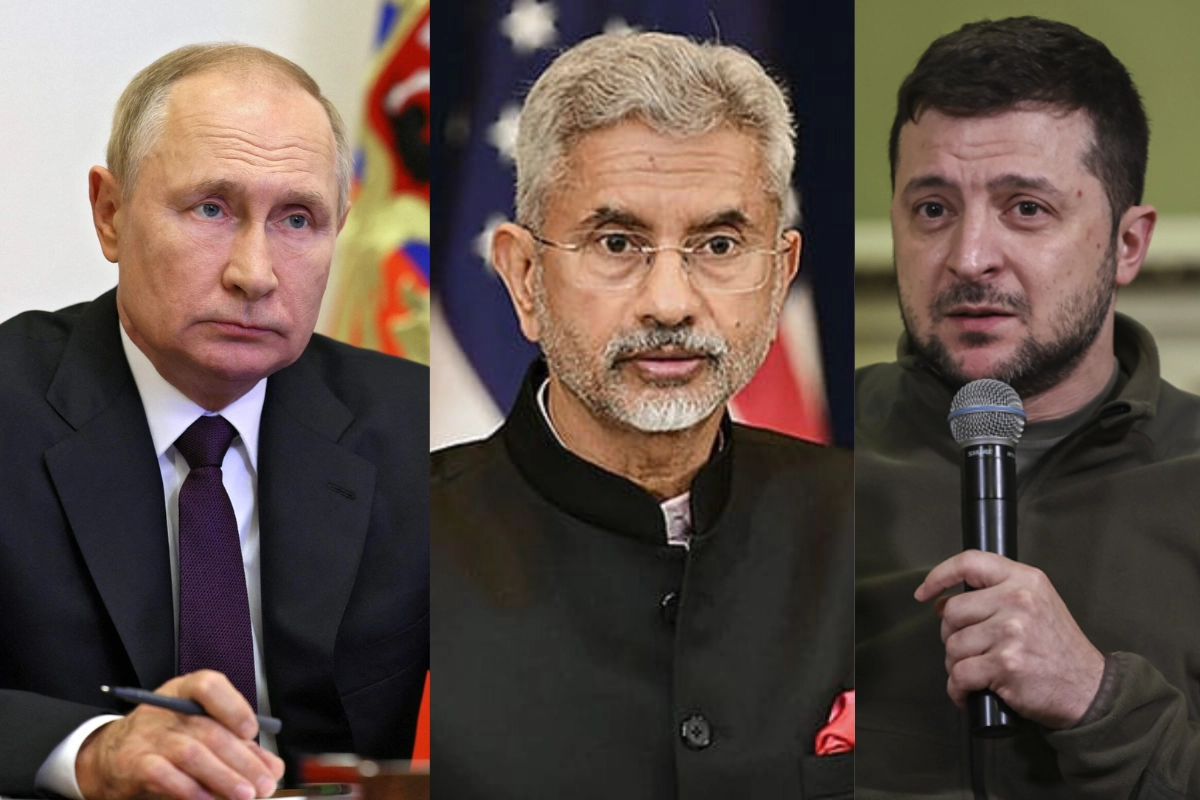Russia-Ukraine War: External Affairs Minister S Jaishankar expressed “very deep” concern over the raging Ukraine conflict, saying that India is on the side of peace and that New Delhi’s effort has been to bring Moscow and Kyiv back to dialogue and diplomacy since the beginning of the hostilities because differences cannot be resolved through violence.
Jaishankar, who landed here from Cyprus on the second part of his two-nation tour on Sunday evening, made the remarks while speaking to members of the Indian diaspora in Austria.
“This (Ukraine) conflict is really a matter of very, very deep concern… Prime Minister Narendra Modi declared in September (that) we actually genuinely believe that this is no longer an era of war. You cannot settle differences and issues through violence,” Jaishankar stated.
He said, “So from the very beginning, our effort has been to urge (Russia and Ukraine to) return to dialogue and diplomacy…The Prime Minister himself has spoken on numerous occasions with President (Vladimir) Putin and President (Volodymyr) Zelensky. I myself talked to my colleagues in Russia and Ukraine.”
“We know this is not (an) easily resolvable situation. But it’s important that countries who believe (in)…negotiation, speak up clearly in that regard…We’re on the side of peace,” he added, adding that “a huge section of the globe thinks like us.” India has frequently urged Russia and Ukraine to resume diplomacy and engagement in order to end their conflict.
PM Modi’s constant attempts to urge both nations to return to the road of diplomacy and negotiation
On many occasions, Prime Minister Modi has talked to the presidents of Russia and Ukraine, urging an urgent cease of hostilities and a return to the road of diplomacy and negotiation to resolve the situation.
On September 16, Modi said during a bilateral meeting with Russian President Putin in Uzbekistan, “today’s era is not one of war” and nudge him to put an end to the violence.
India has not yet condemned Russia’s war on Ukraine, arguing that the problem should be addressed through discussion.
Jaishankar also informed the audience that India’s national security is changing dramatically.
“Much of it is centred around the intense challenges we face on our northern border with China. We continue to have the problem of cross-border terrorism with Pakistan,” he remarked.
Also Read: Supreme Court: Top court to give verdict on Centre’s Demonetisation move today
DON'T MISS
Indian and Chinese troops battled along the LAC
On December 9, Indian and Chinese troops battled along the Line of Actual Control (LAC) in the Tawang sector of Arunachal Pradesh, resulting in “minor casualties to a few individuals from both sides,” according to the Indian Army.
It is the first major combat between Indian and Chinese soldiers since the intense clash in the Galwan Valley in June 2020, which marked the two countries’ most serious military conflict in decades.
Since then, ties between the two nations have remained frozen, with India emphasising that peace and quiet at the border are required for the overall growth of bilateral ties.
So far, the two countries have undertaken 17 rounds of discussions in an attempt to end the deadlock.
The Kashmir dispute and cross-border terrorism emanating from Pakistan have frequently strained relations between India and Pakistan.
Jaishankar further stated that India’s relationship with Bangladesh has considerably improved. He stated, “We have settled our land boundary agreement with them. It’s an example of how successful diplomacy has directly contributed to a stronger relationship (between two neighbours).”
In his speech, Jaishankar also stated that India and Austria will sign some agreements on Monday, some of which will be of interest to the Indian diaspora, such as one on migration and mobility for Indians who want to come here as students/professionals and another on the ‘Working Holiday’ programme, which will allow Indian students in Austria to work for six months.
Earlier in the day, Jaishankar met with top Austrian leaders in the first diplomatic engagement of 2023, conveying Prime Minister Modi’s personal greetings to Chancellor Karl Nehammer.
This is India’s first EAM-level visit to Austria in 27 years, and it coincides with the 75th anniversary of diplomatic relations between the two nations in 2023.
Keep watching our YouTube Channel ‘DNP INDIA’. Also, please subscribe and follow us on FACEBOOK, INSTAGRAM, and TWITTER
